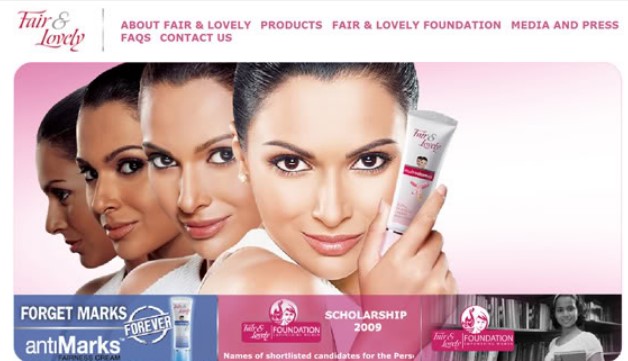
Fair & Lovely, one of the leading products in the skin whitening sector, are allegedly using photo touch-up techniques to justify claims of desired results.
Similar advertisements manufactured by FMCG giant Unilever, displaying photographic changes were earlier withdrawn from being displayed in the UK market in October 2008.
The ad campaign showed a miraculous change in the complexion of a person – from dark to very fair – displayed in a series of photographs. Allegedly, the affect has been achieved in the series of pictures by using software to show the desired results of alteration in the complexion of the person.
The Daily Mirror issue dated October 16, 2008, clearly states that “Consumer goods giant Unilever has been rapped for a TV ad shown in the UK promoting skin-lightening creams.
Created by Unilever’s research laboratories, Fair & Lovely claims to offer dramatic whitening results in just six weeks. A package of the cream displays one face six times, in an ever-whitening progression, and includes”‘before” and “after” photos of a woman who presumably used the product. On its website, the company calls its product “the miracle worker” which is “proven to deliver one to three shades of change”.
However, industry experts said: “Images conveying the same message on the box and in the advertisements are touched up using software.”
Since Fair & Lovely is not categorised as a pharmaceutical product, Unilever has not been required to prove efficacy. Many dermatologists do dispute its effectiveness. Dermatologists claim that fairness creams cannot be effective without the use of skin bleaching agents such as hydroquinone, steroids, mercury salts and other harmful chemicals, which Fair & Lovely does not contain.
Fair & Lovely is the largest selling skin whitening cream in the world, and was first launched in India in 1975. It held a commanding 50-70 per cent share of the skin whitening market in India in 2006, a market that is valued at over $200 million. In India, the ad campaign was also withdrawn when authorities objected to the racial tone of the product and its campaign.
Such advertisements have attracted much public criticism, especially from women’s groups in many countries from India to Malaysia to Egypt.
The target market for Fair & Lovely is predominantly young women aged 18-35. According to retailers and market research report, “there is repeated evidence that schoolgirls in the 12-14 years category widely use fairness creams”.
Extracts from an Emirates Business article by Vigyan Arya, published 9 February 2010 (original *dead link*)




I love the fair&lovly
Where can I find the cream in Durban?
I just started using f&l and remarkably in just 2 days, I could see my face getting brighter.
heres some faqs anyway http://www.fairandlovely.in/Product/faqs.aspx
i hope its safe n i dont get spots, trying it for a week.
Does anyone know what the ingredients actually are in fair and lovely creams? I started using it but had to stop before six weeks as it made my skin break out in extremely dry red spots – some of which still haven’t disappeared. I know that’s a completely different issue, but I didn’t notice any change in the colour of my skin and wouldn’t be surprised at all if the images were photoshopped.